"If you try to be funny, it'll either work or it won't" – Exploring the games that are trying to turn everyday life into a slapstick comedy
Celebrating the games that are looking for hilarity in humdrum routines
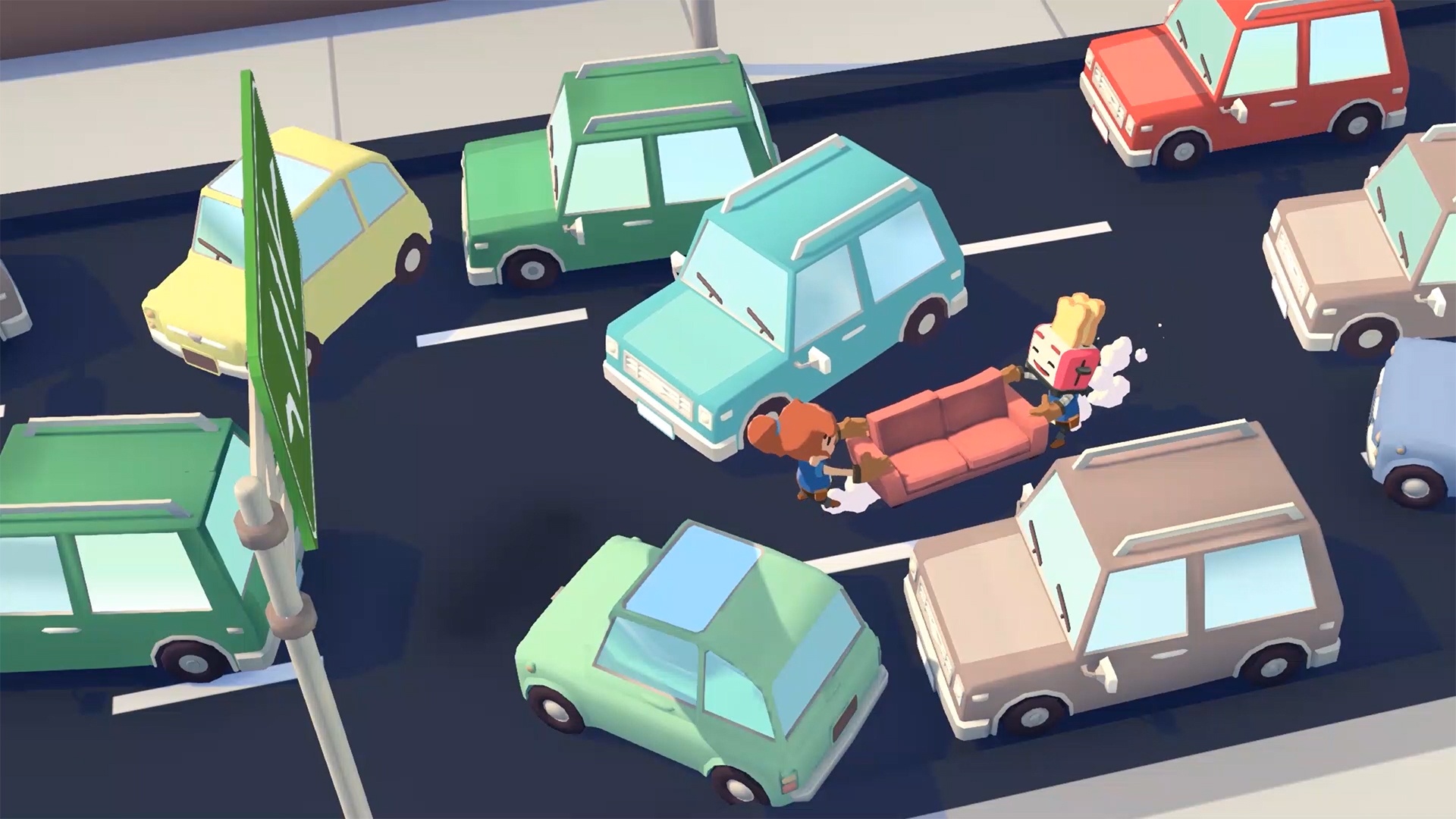
Comedy in video games is notoriously tricky to pull off. And that's because it all stems from where the developer wants it to come from. Do you write a funny story and outline witty characters, hoping that players find humour in your words? Or do you create specific scenarios in which a player can then implant themselves within, all in the hopes that they will find humour naturally through the course of play? It's that last route where one corner of the independent scene has continued to excel, thinking up seemingly mundane situations that most people can relate to – but in doing so letting them mine the subject matter for pure comedy gold.
For Bossa Studios' Luke Williams, finding hilarity in the humdrum is all about ever so slightly tweaking what players expect from certain situations. "Like Surgeon Simulator before it, I think the humour in I Am Bread comes from making one thing absurd in an otherwise ordinary, mundane world," he reveals. "A good test for this is if the player doesn't do anything, does anything funny happen? Well in Surgeon Simulator you'd just be looking at an operating table, and in I Am Bread it would just be a plain old kitchen or living room. Nothing funny happens until the player starts playing. That's what makes the absurd thing stand out against a mundane backdrop."
Following one slice of bread's epic adventure to get toasted by any means possible, in I Am Bread players must wrangle with purposely awkward controls to flip and flop across levels without getting dirty, looking for off-kilter ways to get cooked without a toaster. Such physics-based tomfoolery is the primary catalyst for a unique type of situational comedy, and even Williams reinforces that it was a tough task not to go too overboard with it.
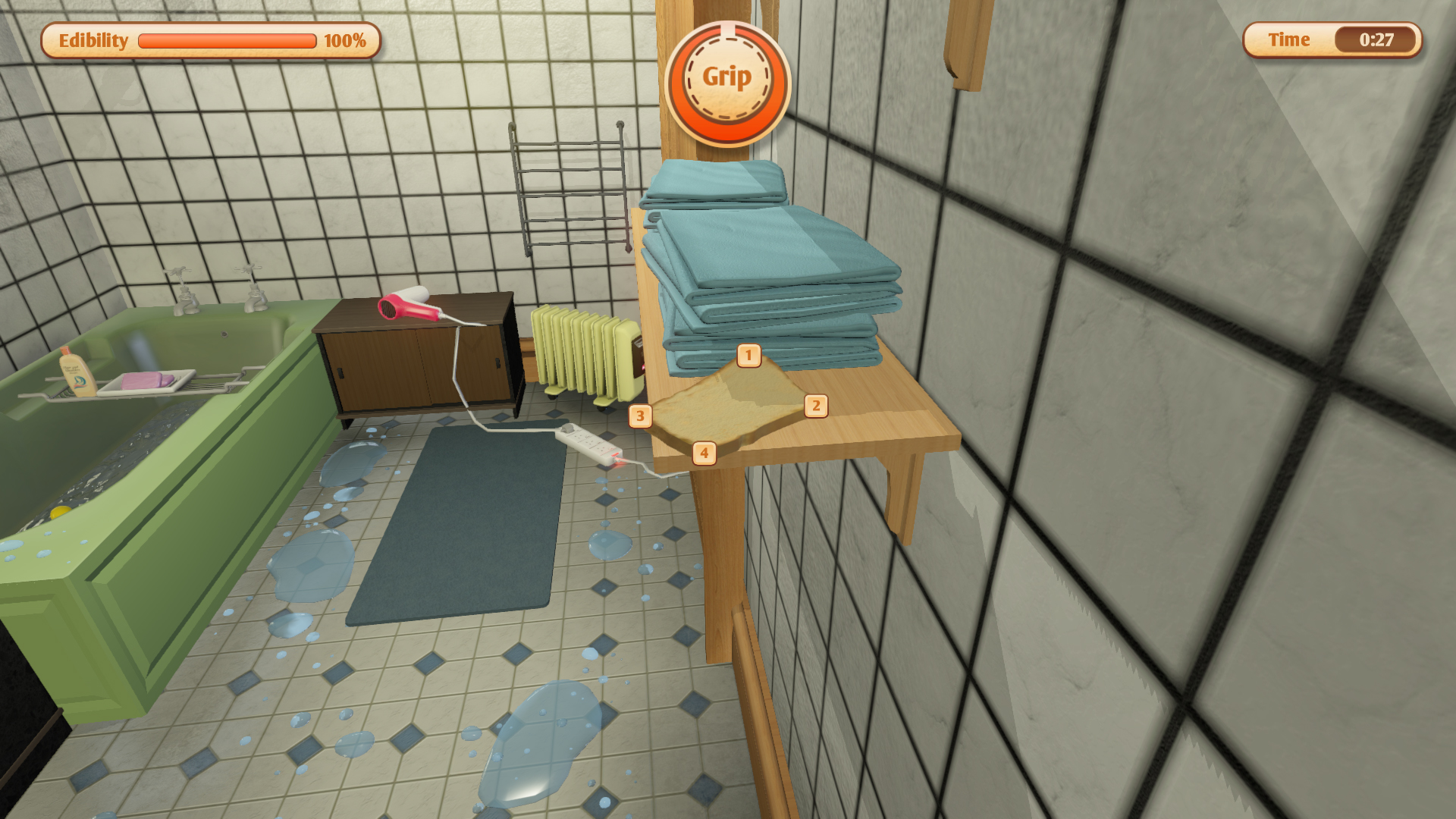
"We definitely added a lot of unusual ways to become toast to the point where I'm not sure any players are aware of even now," says Williams. "Like how every light bulb in the game will toast you – if you somehow manage to climb across the ceiling to them. In the main game, we made sure to not be too crazy and keep the world pretty grounded in plain old England. However, we did go a bit nuts with the additional modes, like zero gravity mode, where we attached mini rockets to each corner of the bread, and it's all about toasting your bread by using the least amount of fuel to fly around."
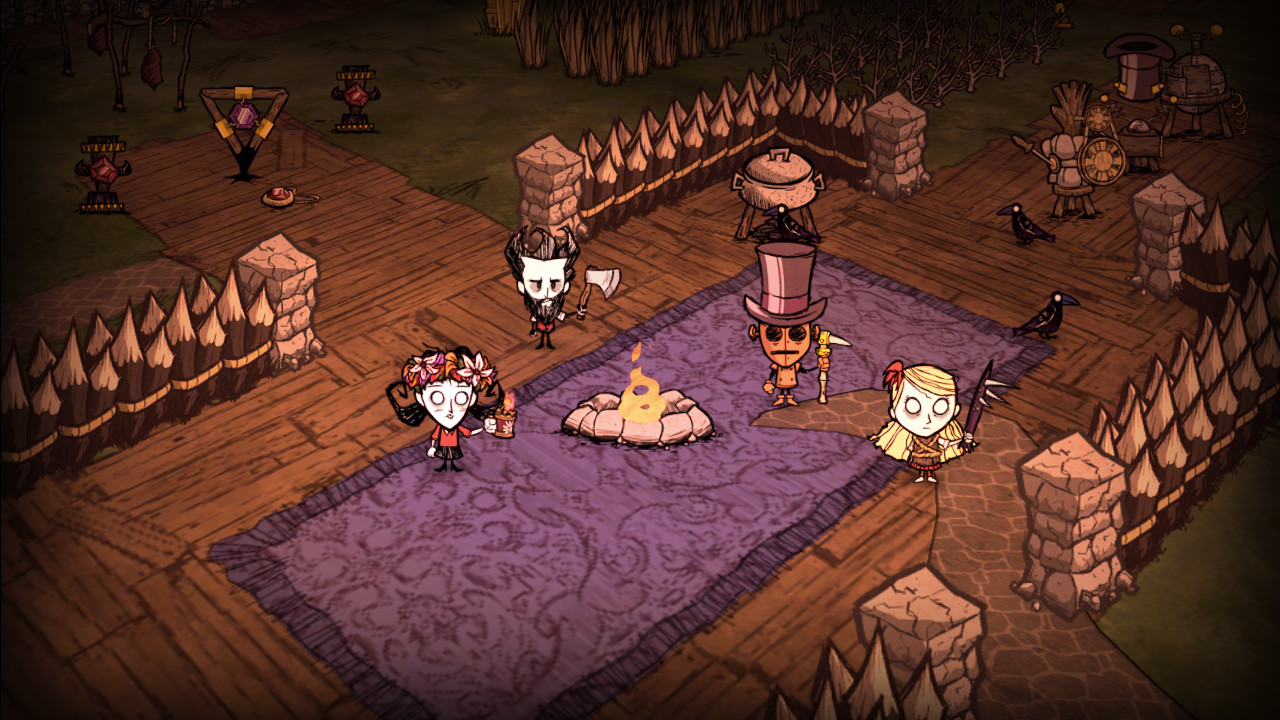
Looking for something to play now while you're waiting for the release of Moving Out? Here's the 25 best co-op games to play right now
As far as culinary antics are concerned, Bossa Studios isn't the only developer that recognised its potential for generating a good laugh. Because while Gordon Ramsay's foul-mouthed persona may have built up the industry's reputation as being one rife with stress, sweat and tears, Ghost Town Games transformed these elements into a package perfectly primed to create a new brand of co-operative comedy greatness.
"I'm not sure that we set out to make a chaotic experience per se," says Phil Duncan of his breakout hit, Overcooked and its sequel, Overcooked 2. "I think that was largely a result of the fact that trying to communicate and coordinate while under time pressure is naturally quite a chaotic endeavour. What we did find in early playtests of the game is that if the kitchen remained static, players would naturally find a job they liked and stick to it, at which time communication would just sort of shut down."
Trying to improve player communication forced Duncan and his team to think out of the box, until they eventually "added more dynamic elements like shifting levels, moving obstacles and so on… meaning that players would constantly need to stay on their toes and switch roles on the fly."
Weekly digests, tales from the communities you love, and more
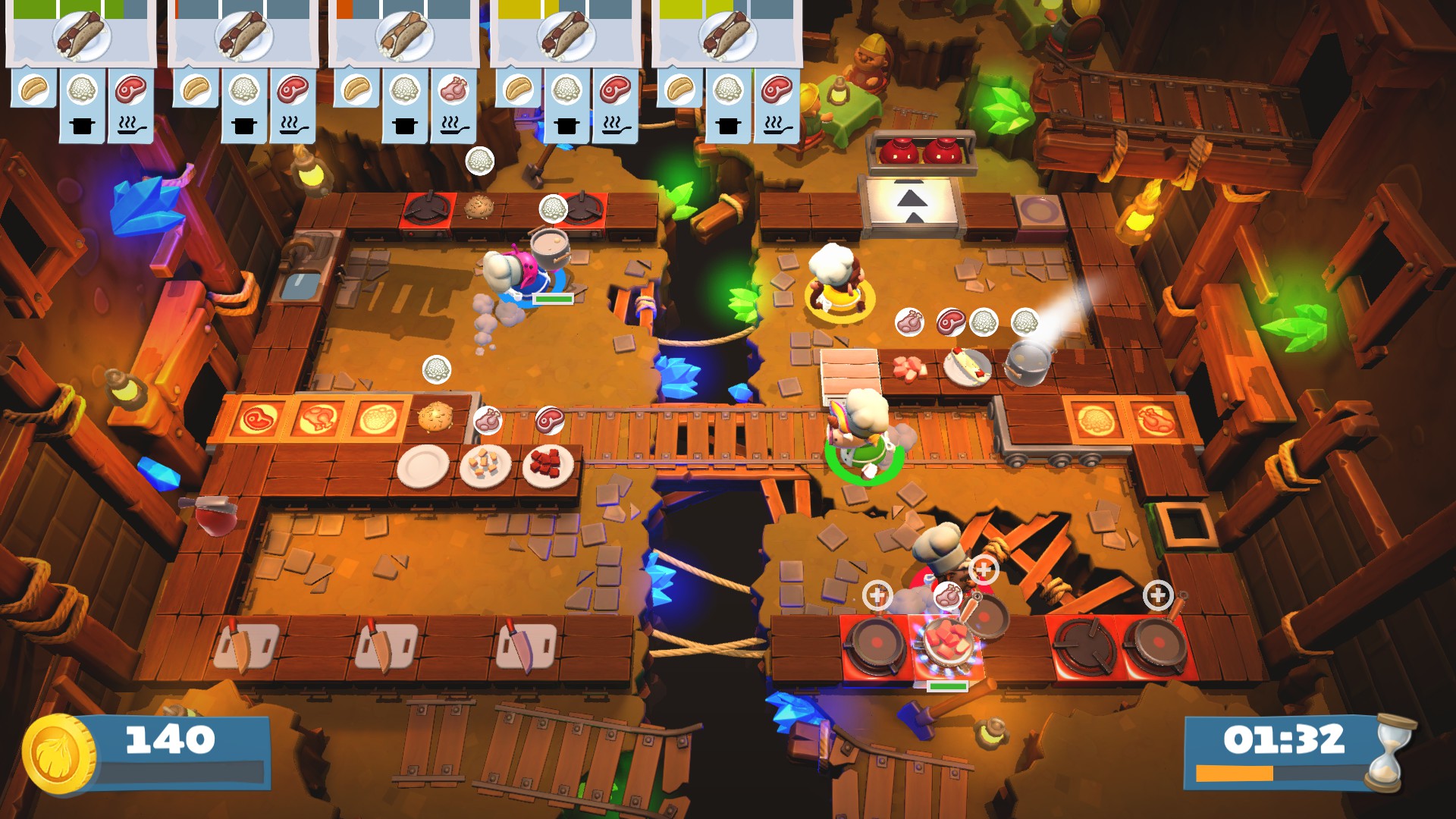
"I've heard it said that good comedy is about subverting expectation"
Phil Duncan
The result of this is a series of cooking simulation games unlike any other, where speaking to each other remains crucial in getting as many orders out of the door as possible. It just so happens that you're doing so in service of a giant onion king threatening to bring about a food-apocalypse. As lavish as Overcooked's lore and madcap locations end up being, however, it works because cooking in a kitchen is a setup everyone is familiar with. The only additional ingredient Ghost Town Games uses to enhance the humour more is one that's crucial for any comedic endeavour: timing.
"Timers are the most important weapon in our arsenal for this," Duncan advocates, "always giving the player a choice: Do you A) Stay by the pot and wait for that Burger to cook or B) Attempt to use that time more wisely by chipping in with the washing up or the chopping (and risk stepping on another player's toes). I think a lot of the comedy in the game comes from players tripping over each other as they attempt to be more efficient and end up achieving exactly the opposite." Summing up his thoughts on Overcooked's recipe for success, Duncan remarks: "I've heard it said that good comedy is about subverting expectation, and I would say that definitely counts for when you turn around to find your teammate washing up in your sink while their cooker bursts into flames!"
Finding humour in everyday life
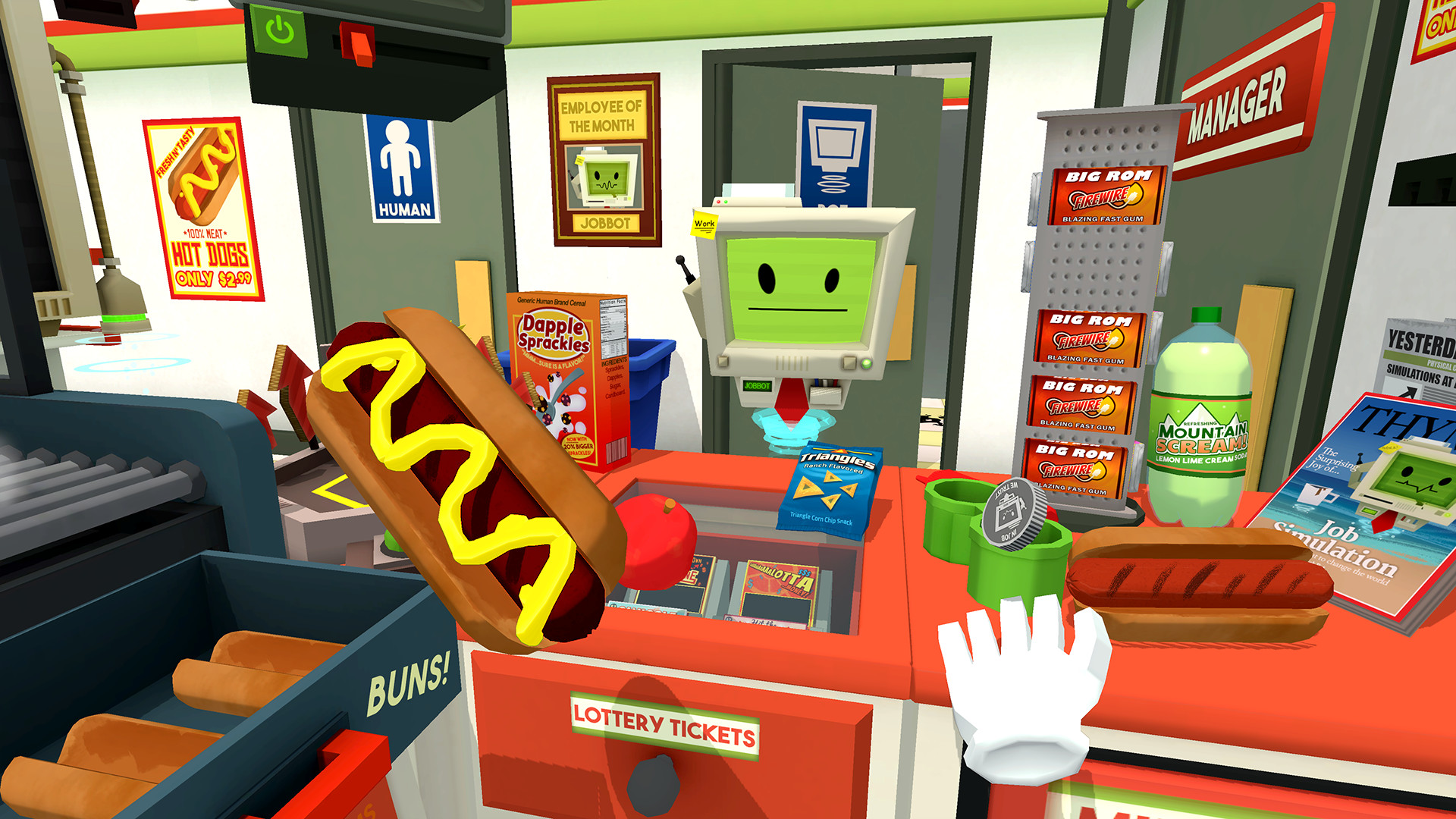
If creating a rib-tickling time entails immersing players in situations they know, in ways they least expect, then developer Owlchemy Labs has gained an unfair advantage by centring their games around VR. Both Job Simulator and recently released sequel Vacation Simulator successfully tap into this thinking using technology still relatively new to consumers, even if it was a little while until the team found its "ah-ha!" moment. "The office was actually the ninth prototype," says Owlchemy Labs' Devin Reimer. "Nine before we made a virtual office! At first, we thought the most interesting jobs would be the over-the-top ones, but we realised that the understandability of 'boring' jobs made them the ripest for subversion and parody."
Tasking players to participate in simulated jobs inside a museum run by unbeknownst CRT robots, Job Simulator acts as the ideal creative playground in which anyone can say "screw this" to traditional work scenarios like scanning items. They are instead encouraged to complete objectives in a style of their choosing, combining present objects in foolish ways and undertaking further experiments within a workplace setting where nobody knows better enough to judge them. A great example is the copy machine segment. In the game, robots misunderstand the concept of "copy", and so make a direct copy of literally any object you can pick up.

Looking for more weird and wonderful things to play? Here's the 10 weirdest simulation games that are about to become your new favourite hobby
With regards to this venture specifically, Reimer notes: "Early on, we noticed our players trying to copy ridiculous things – money, CDs, even their face! In those situations where players go above and beyond, we reward their results. Copying a CD or money gives you a counterfeit copy that scolds you. Put your face in the copy machine, and a brain pops out. Stuff like that makes people lose their minds (or maybe double their brains)."
Again, though, it's all about creating relatable moments to generate humour from this freedom. "Our comedy is built on understanding and subverting player expectations, but that requires expectations to begin with," Reimer continues. "Few people know how what an astronaut actually does day-to-day or how a chemistry lab works, but almost everyone has experienced a crappy boss, whether it's in real life or through pop-culture. Having common ground meant we had more room to create relatable moments and really push the boundaries of humour in our world."
Moving house is no laughing matter
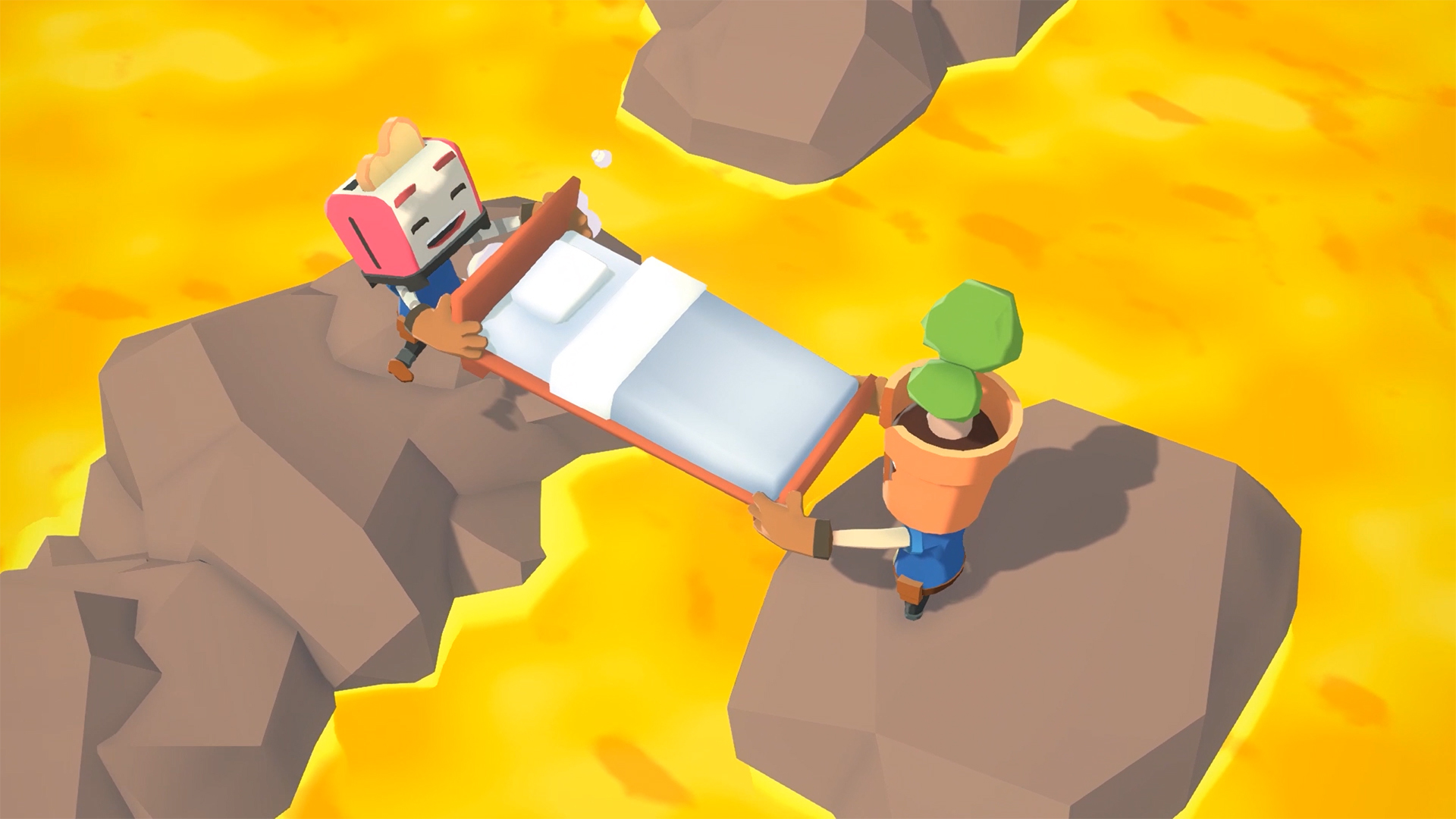
"It feels like games are a little bit too serious. I guess humour is something that is much harder to get right"
Ashley Ringrose
So, what do you get when you combine Overcooked's affinity for navigating crazy locations and obstacles, I Am Bread's tricky controls and Job Simulator's workplace wit? You get a game, expected to release later this year, that's already making waves for how it pokes fun and makes light of a much-bemoaned everyday scenario: Moving Out. In it, players step into the role of Furniture Arrangement & Relocation Technician (or F.A.R.T. for short), forced to swiftly learn the do's and don'ts of moving furniture. And you better do it quick, as it's your job to ensure prompt delivery!
In a joint development with SMG Studio and Devm Games, Moving Out's origins start in a surprisingly bitter place. "I think it's probably pretty common for people to have bad experiences when hiring moving companies," reveals Devm Games' Jan Rigerl. "My last experience with a professional moving company ended up with a bunch of my stuff broken, maybe this would be more fun if it happened to someone else?"
Rigerl eventually turned this poor experience into something joyous, joining up with SMG Studio who bought into its comedic premise that still would present a challenge. "When Jan first showed us the early prototype, I instantly could see the potential," says Ashley Ringrose of SMG. "That scene from Friends with Ross yelling 'PIVOT!' is something that's so relatable to anyone who has moved a large item. Watching people play Moving Out you can see who is Chaotic Evil and who is Lawful Good. We have 'traditional' paths such as doors and stairs and then 'fun' paths such as windows. It's being able to make your own path and 'being naughty' that's fun."
Ringrose even admits there was a danger of going too crazy in what Moving Out asks players to work around, but it's about striking the perfect balance. "We've explored a lot of simple and complicated mechanics for the game, and it was an easy temptation to give into to keep adding more and more elaborate ones. What we're doing now is scaling back and find the ones that enhance the co-op experience but also have maximum reusability. In the trailer, we have slingshots and trampolines; these are both physically fun things, but when used for the goal of moving A-to-B it creates chaos."
While SMG Studios and Devm Games represent an indie scene willing to experiment in deriving humour from familiar frolics, Ringrose recognises the wider scene's unwillingness to do the same, hoping that games like his and the others discussed in this article will help change that. "I think there's still plenty of room for more 'funny' games," Ringrose maintains. "It feels like games are a little bit too serious. I guess humour is something that is much harder to get right and be universal with. There's plenty of tropey fantasy/sci-fi, and it's all pretty forgettable, but if you try to be funny, it'll either work or it won't. So, I guess it's safer to choose guns and dragons?"
All the E3 2019 games to expect this year, from the confirmed to the utter wildcards

Aaron is a freelance writer who appreciates a good video game story just as much as great visuals and gameplay. Having covered the subject for places like WIRED, Den of Geek, PLAY Magazine, NME, PC Gamer and more, he’s well equipped to discuss a range of topics and industry goings-on through in-depth features, developer interviews and thoughtful reviews. His favourite game ever is 2005’s TimeSplitters: Future Perfect, a madcap character shooter from the makers of GoldenEye 007 that he first played whilst on holiday in Butlin’s Minehead. Because who needs to have fun in the sun, anyway?


